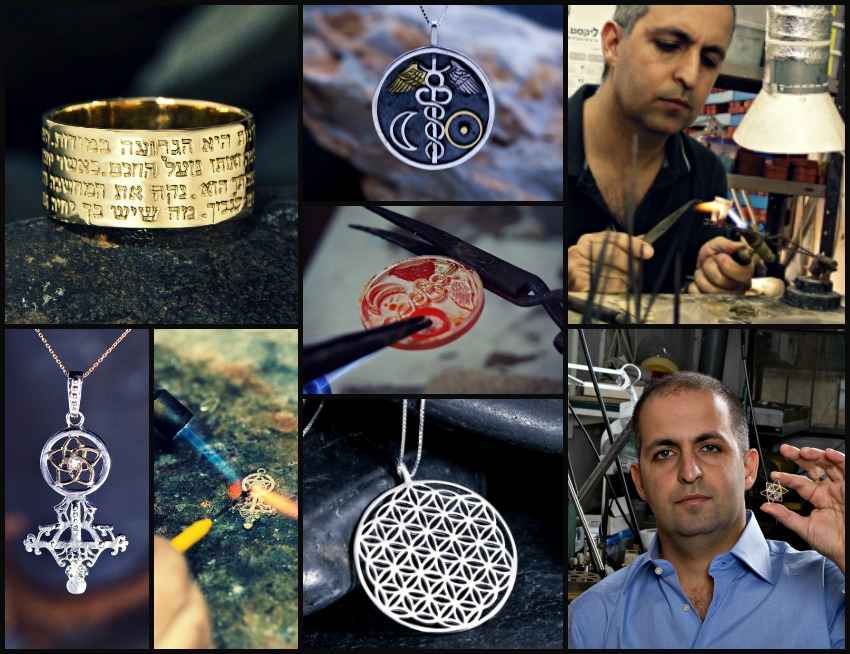February 2016 NewsletterThe Divine Commandment - ”Love Thy Neighbor as Thyself"Our story this time takes place in the land of Israel in the latter part of the 1st century and the first part of the 2nd. During the reign of the Roman Empire. Our protagonist is Akiva ben Joseph, a poor uneducated shepherd of humble parentage working for the richest man in Jerusalem, Kalba Savua. The name kalba Savua is an ancient Aramaic nickname which is derived from the fact that a poor person would enter his home, as famished as a dog ("kalba" is Aramaic for dog), and would emerge after a hearty meal with a full belly ("savua" is linked to "save'a," which in Hebrew means sated). The
Divine Commandment NewDesign
Kalba Savua's daughter Rachel noticed how modest Akiva was and how fine a person he was. She said to him: “If I agree to be your wife, will you study Torah in the beit midrash [school for the study of Torah]?” He replied, “Yes”. Their wedding ceremony was carried out clandestinely. When Kalba Savua found out about the marriage he banished her from his house, cutting her off from all his assets. The legend goes on to tell us of the difficulties faced by the young couple. They settled in a barn. In the morning, when the daughter awakens, she finds that her hair is full of straw. Her new husband picks out the straw from her hair and promises her that, if he had enough money, he would give her a "Jerusalem of gold”, a famous gold ornament/pendant at that time. In order to persuade the bride that their situation is not so dire, Elijah the Prophet appears in the guise of a poor begger and asks them for a little straw for his wife who is about to give birth. Rabbi Akiva says to his wife, “You see this person? He does not even have a bit of straw." Rachel says to her husband, "Go and study Torah in a beit midrash." Rabbi Akiva obeys her wishes and sets off on his journey to learn Torah. Twelve years pass and he returns home accompanied by 24,000 students.
All of the townspeople come out to greet him. So does his wife, who appears in ragged clothes and who refuses to heed the advice of her neighbors who suggest that she borrow suitable attire. When his students catch sight of her, they try to prevent her from approaching Rabbi Akiva. However, he immediately calls a stop to their efforts (using one of the shortest and most beautiful statements to describe their mutual relationship): "What is mine and what is yours - belongs to her!" Love thy neighbor as thyself Rabbi Akiva became eventually one of the greatest Tanaa’im (sages) of the era, and when someone asked him if he can sum up the sacred Torah in one sentence he said “Veahavta Le’ reakha kamokha” - ”Love thy neighbor as thyself”. This commandment appears in the Torah a few times. At first the creator simply asks for love “with all your heart, soul and will”, then the commandment appears once again as “Love the foreigner” and eventually it appears as “Love thy neighbour”.
I’ve created this pendant as a powerful symbol and message. The two cherubs are holding the “Divine Commandment” which simply states “Love!” and is written in the traditional Assyrian Hebrew fonts of the Torah. The two cherubs are based on ancient Assyrian and Egyptian motifs which were common in the ancient Middle East. Other Related jewelry
Links to the designs in the Collage: Top - Ahava Ring Center on the right - Venus in Pisces Talisman Center on the left - Gordian Knot pendant Bottom on the left - Cranes Ring Bottom on the right - The key of Love Thank you for reading With Great Love David and Ka-Gold Team |
||||
Email: [email protected]
US Phone: 1-888-215-6036
Calls are redirected to Israel. Time in Israel: 01:35
Phone: 052-7457224 ![]()
Mailing Address: Flowers of Life Jewels LTD P.O. box 633 Ha-Lamed Hei St. Givataim 5310601 Israel
Your message was sent successfully!
We will be in touch as soon as possible.
Something went wrong, try refreshing and submitting the form again.
Ka Gold Jewelry Features David Weitzman Spiritual Jewelry Artwork.
David's Jewelry harness the power of spiritual symbols and sacred geometry to bring those wearing them happiness, vitality, excitement and love. We invite you to join us on a journey full of Harmony, Beauty, ancient wisdom and symbolism.
